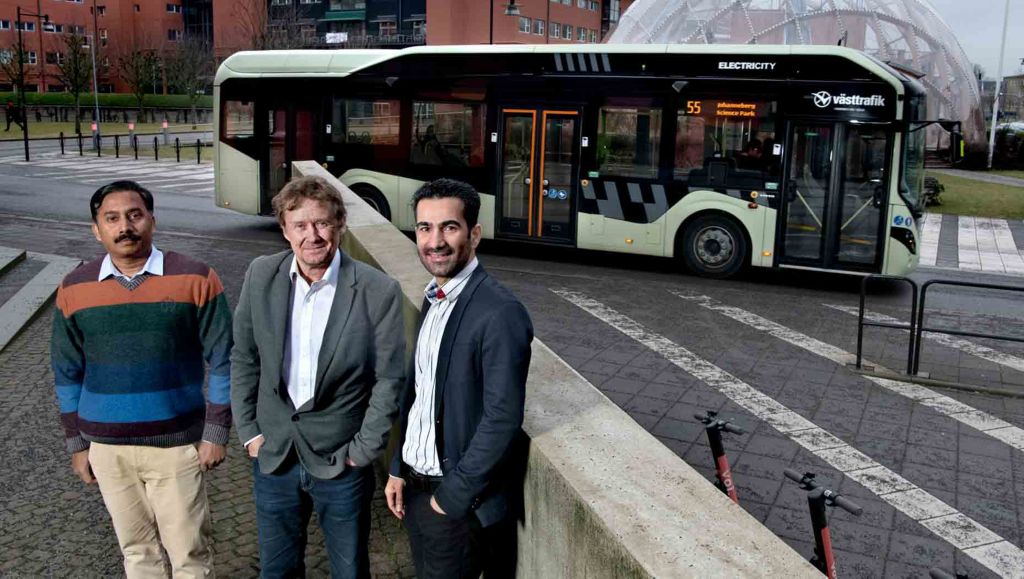Effective connectivity with Volvo’s Zone Management


Matti Granhage works for Volvo Group Connected Solutions, which is the part of the Volvo Group that is leading the development of connected services and solutions. The team covers all the brands in the Volvo Group, but Matti is currently focusing on Zone Management for Volvo Buses.
How it works
Zone Management is similar to a more advanced geofencing system.
“Geofencing means putting a virtual fence around an area and using GPS technology to limit the speed of vehicles or even bring them to a complete standstill,” explains Matti.
“In a Zone Management system, the vehicle itself uses downloaded data to find out what speed it should be travelling at and where it is allowed to go. For example, if there is a zero-emission zone in a city, a hybrid bus can easily switch to electric mode.”
Zone Management systems have a number of advantages, but Matti highlights the fact that at low speeds the automatic braking system is more effective.
“Outside schools or in parts of the inner city where there are a lot of people about, the bus automatically reduces its speed to a level where the automatic brake can do its job if someone steps out into the road,” he continues. “It doesn’t make any difference how hard the driver presses the accelerator.”
Driving at night through heavily built-up areas is not a problem either, because the system can make sure that only electric vehicles can enter, in order to keep noise levels to a minimum. Many cities are already planning to allow only zero-emission vehicles in their centres in future.
A vehicle that is connected to Zone Management will be aware of this and will automatically change to electric mode as it approaches the zone. Transport systems will become more efficient, more environmentally friendly and safer.
Although some of this may sound like a vision of the future, Zone Management is already installed in some of Volvo’s vehicles.
“Volvo Buses was first to provide the service and now we are working on the next version,” says Matti. “We are planning to connect a few bus routes in Gothenburg to the Swedish Transport Administration’s database to download the city’s speed limits and based on that control the buses,” he continues.
Smart vehicles
One challenge presented by the system, according to Matti, is the space needed to store a large amount of data in the vehicle.
“We are looking at some different solutions,” says Matti, “but the vehicles which cover longer distances need to be smart enough to know where to find the data for the part of the country they are currently in.”
The volume of information that has to be downloaded to the vehicle becomes clear when Matti starts to talk about the next stage of development.
“We are investigating downloading weather data so that the vehicle can adapt its speed to the weather conditions and travel more safely,” explains Matti.
If information about bridges and tunnels was also available, it would be possible to warn drivers if they took the wrong route where there is a bridge or a tunnel not suitable for a large vehicle.
“Taking a chance or making a mistake could lead to serious damage to the vehicle,” says Matti.
Research and development
Research is already underway in this field and countries are reviewing their legislation to make our cities safer. In 2017 the Swedish government launched a project to create safer, more climate-smart cities using geofencing technology. Volvo is involved in the study, together with other organisations in Sweden.
“Zone Management is also important for the autonomous vehicles of the future. Many major cities are very interested in a solution of this kind,” says Matti, “and we will be able to offer it in future, because we are one of the leaders in this field of technology.”